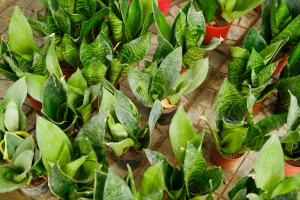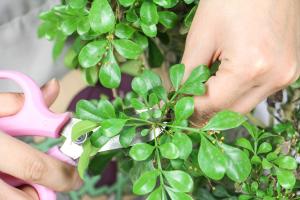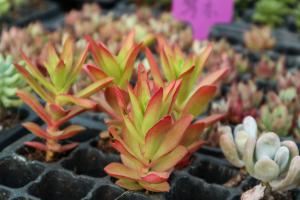Is a Money Tree Plant Toxic to Dogs?
Many people love to decorate their homes and gardens with plants, but when you have a dog, you need to be careful about the types of plants you choose. Some plants can be toxic to dogs and cause serious health problems if ingested. One plant that often raises questions about its safety for dogs is the money tree plant.
What is a Money Tree Plant?
A money tree plant, also known as Pachira aquatica, is a tropical plant that is popular for its braided trunk and shiny green leaves. It is often used as a decorative plant in homes and offices and is believed to bring good luck and prosperity to its owners. However, despite its popularity, some pet owners are hesitant to keep this plant in their home due to concerns about its potential toxicity to dogs.
Is a Money Tree Plant Toxic to Dogs?
According to the American Society for the Prevention of Cruelty to Animals (ASPCA), the money tree plant is non-toxic to dogs. This means that if your dog accidentally ingests the leaves or stems of the plant, there is little risk of serious health problems. However, this does not mean that you should allow your dog to eat the plant in large amounts. Consuming any plant material can lead to digestive upset, such as vomiting and diarrhea, in dogs.
How to Keep Your Dog Safe Around Money Tree Plants
While a money tree plant is not toxic to dogs, there are still precautions you should take to keep your dog safe around this plant. First, make sure that the plant is placed in an area that is out of reach for your dog. This will prevent any accidental ingestion of the plant, which could lead to digestive upset. Additionally, it's a good idea to monitor your dog around any decorative plants in your home and discourage them from eating any plant material.
Other Common Plants That Are Toxic to Dogs
While the money tree plant is safe for dogs, there are many other common plants that can be toxic to dogs. Some of these plants include:
Aloe Vera
Autumn Crocus
Azalea
Certain species of lilies
Chrysanthemum
Cyclamen
Daffodils
Delphinium
Hydrangea
Iris
Lantana
Tomato plants
If you have any of these plants in your home or garden, it's important to keep them out of reach of your dog. If you suspect that your dog has ingested any toxic plant material, it's important to contact your veterinarian right away.
In Conclusion
The money tree plant is a popular decorative plant that is safe for dogs to be around. However, it's important to remember that any plant material can cause digestive upset in dogs, so it's best to keep your dog away from all plants whenever possible. If you have any questions or concerns about the safety of plants for your dog, be sure to consult with your veterinarian.

 how many times do yo...
how many times do yo... how many planted tre...
how many planted tre... how many pine trees ...
how many pine trees ... how many pecan trees...
how many pecan trees... how many plants comp...
how many plants comp... how many plants can ...
how many plants can ... how many plants and ...
how many plants and ... how many pepper plan...
how many pepper plan...






























